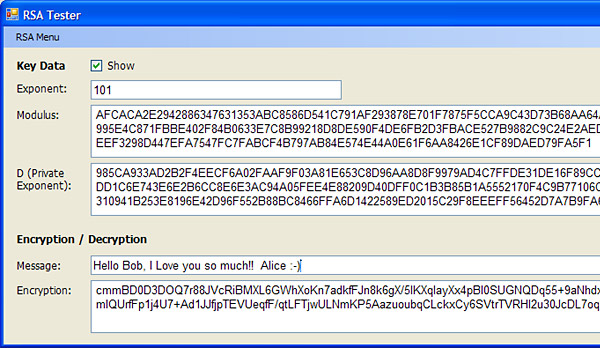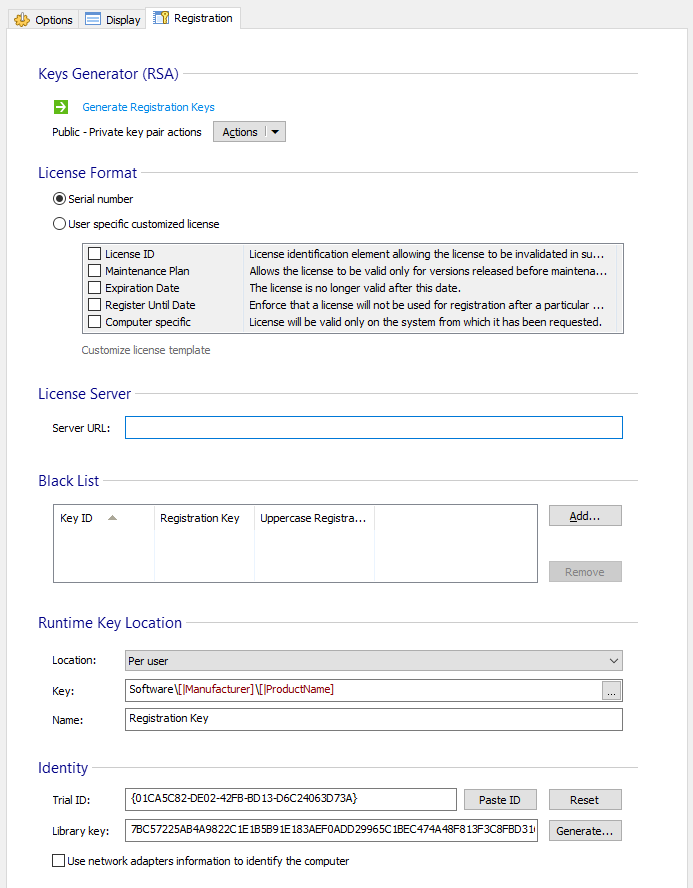Rsa Generate Key Pair Java
In order to be able to create a digital signature, you need a private key. (Its corresponding public key will be needed in order to verify the authenticity of the signature.)
In some cases the key pairHp photosmart c4780 download mac. (private key and corresponding public key) are already available in files. In that case the program can import and use the private key for signing, as shown in Weaknesses and Alternatives.
RSA example with random key generation. RSA example with PKCS #1 Padding. RSA example with OAEP Padding and random key generation. An example of using RSA to encrypt a single asymmetric key. Simple Digital Signature Example: 36.38.7. Creates a 1024 bit RSA key pair and stores it to the filesystem as two files. RSA(Rivest-Shamir-Adleman) is an Asymmetric encryption technique that uses two different keys as public and private keys to perform the encryption and decryption. With RSA, you can encrypt sensitive information with a public key and a matching private key is used to decrypt the encrypted message.
In other cases the program needs to generate the key pair. A key pair is generated by using the KeyPairGenerator class.
- May 21, 2007 This tip shows how RSA keys can be saved to disk as an XML file. The XML files can then be used to make an RSA secure channel. Generate RSA public and private keys, export to XML. This tip shows how RSA keys can be saved to disk as an XML file. The XML files can then be used to make an RSA secure channel. Find the Java IDE that best fits.
- Here is an example of creating a Java KeyPairGenerator instance: KeyPairGenerator keyPairGenerator = KeyPairGenerator.getInstance('RSA'); The getInstance method takes the name of the encryption algorithm to generate the key pair for.
- RSA keys must be between 2048 and 4096 bits. To generate a new public/private key pair in a Java keystore Use the -genkeypair option to generate a key and save it to a Java keystore ( newkeystore.jks in this example).
In this example you will generate a public/private key pair for the Digital Signature Algorithm (DSA). You will generate keys with a 1024-bit length.
Generating a key pair requires several steps:
Create a Key Pair Generator
The first step is to get a key-pair generator object for generating keys for the DSA signature algorithm.
As with all engine classes, the way to get a KeyPairGenerator object for a particular type of algorithm is to call the getInstance static factory method on the KeyPairGenerator class. This method has two forms, both of which hava a String algorithm first argument; one form also has a String provider second argument.
A caller may thus optionally specify the name of a provider, which will guarantee that the implementation of the algorithm requested is from the named provider. The sample code of this lesson always specifies the default SUN provider built into the JDK.
Put the following statement after the
line in the file created in the previous step, Prepare Initial Program Structure:
Initialize the Key Pair Generator
The next step is to initialize the key pair generator. All key pair generators share the concepts of a keysize and a source of randomness. The KeyPairGenerator class has an initialize method that takes these two types of arguments.

The keysize for a DSA key generator is the key length (in bits), which you will set to 1024.
The source of randomness must be an instance of the SecureRandom class that provides a cryptographically strong random number generator (RNG). For more information about SecureRandom, see the SecureRandom API Specification and the Java Cryptography Architecture Reference Guide .
The following example requests an instance of SecureRandom that uses the SHA1PRNG algorithm, as provided by the built-in SUN provider. The example then passes this SecureRandom instance to the key-pair generator initialization method.

Some situations require strong random values, such as when creating high-value and long-lived secrets like RSA public and private keys. To help guide applications in selecting a suitable strong SecureRandom implementation, starting from JDK 8 Java distributions include a list of known strong SecureRandom implementations in the securerandom.strongAlgorithms property of the java.security.Security class. When you are creating such data, you should consider using SecureRandom.getInstanceStrong(), as it obtains an instance of the known strong algorithms.
Generate the Pair of Keys
The final step is to generate the key pair and to store the keys in PrivateKey and PublicKey objects.
Table of contents: #
This article shows how to securely connect (i.e. establish ssh connection) to the remote host from java application. Also, configuration details for enabling public key authentication and protecting ssh keys will be provided.
Public key authentication enables users to establish an SSH connection without providing (i.e. typing in) explicit password. The immediate benefit is that the password is not transferred over the network, thus preventing the possibility of the password being compromised.
The private key should be stored in the ssh keychain and protected with the encryption passphrase.
The first step is to generate a private/public key on the server where your java application will be running.
Private/public key pair can be generated by executing the following command:
Here is the output from my local development box:
Private key is identified as id_rsa and public key as a id_rsa.pub.
The ssh-copy-id copies the public key of your default identity (use -i identity_file for other identities) to the remote host.
Java Code To Generate Rsa Key Pair
I have used JSch library to establish SSH connection.
Java Bouncycastle Generate Rsa Key Pair
Wow warlords of draenor cd key generator. The most important part is configuration of com.jcraft.jsch.Session object and adding publickey to the list of PreferredAuthentication options.
Java Generate Rsa Key Pair
Here is the sample code for configuring public key authentication:
The next step is to connect to the remote host and execute an arbitrary command over SSH:
Java Card Generate Rsa Key Pair
For a full example, you can check out code from the following git repository.
Date: 23 Nov 2015